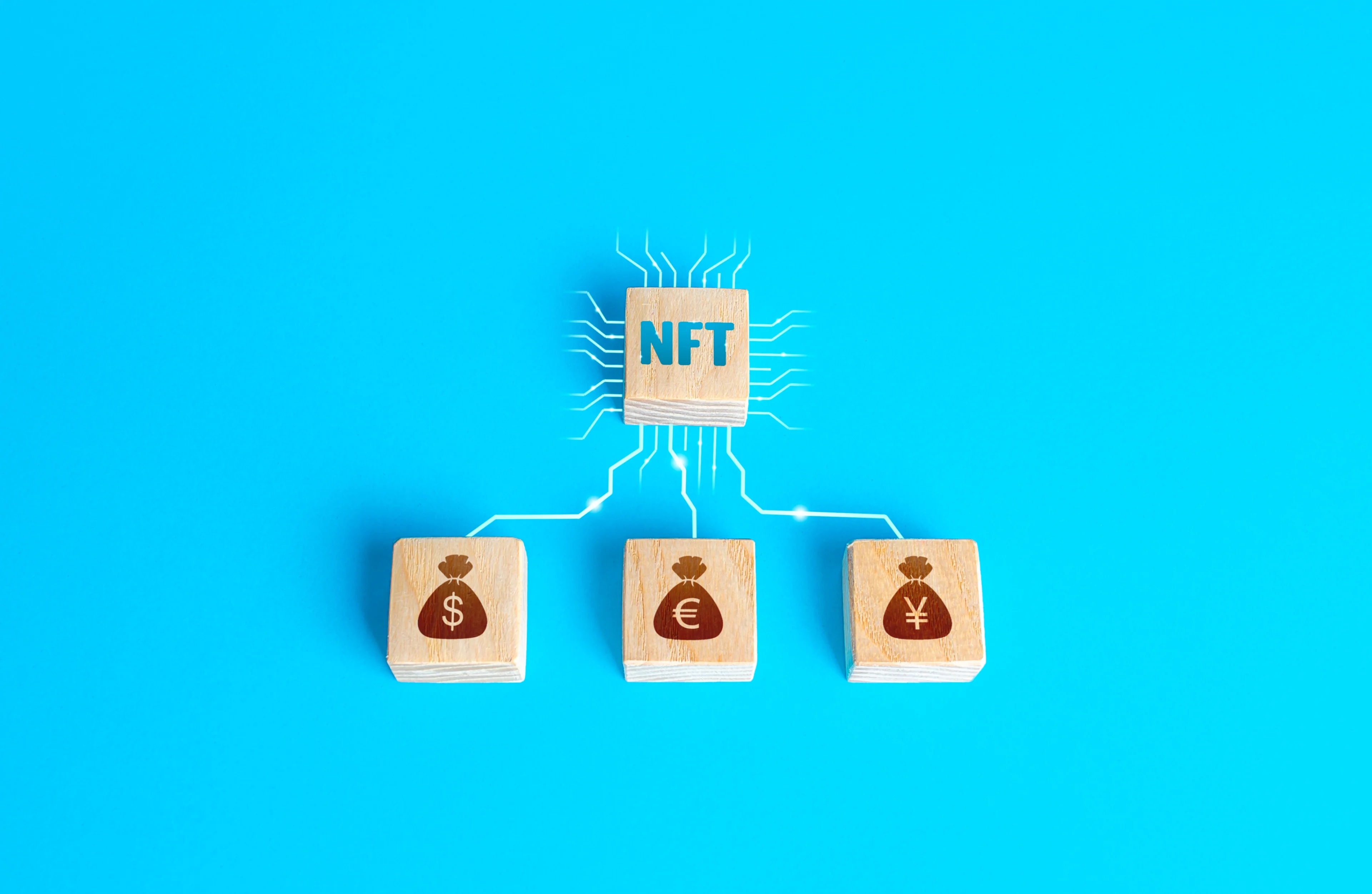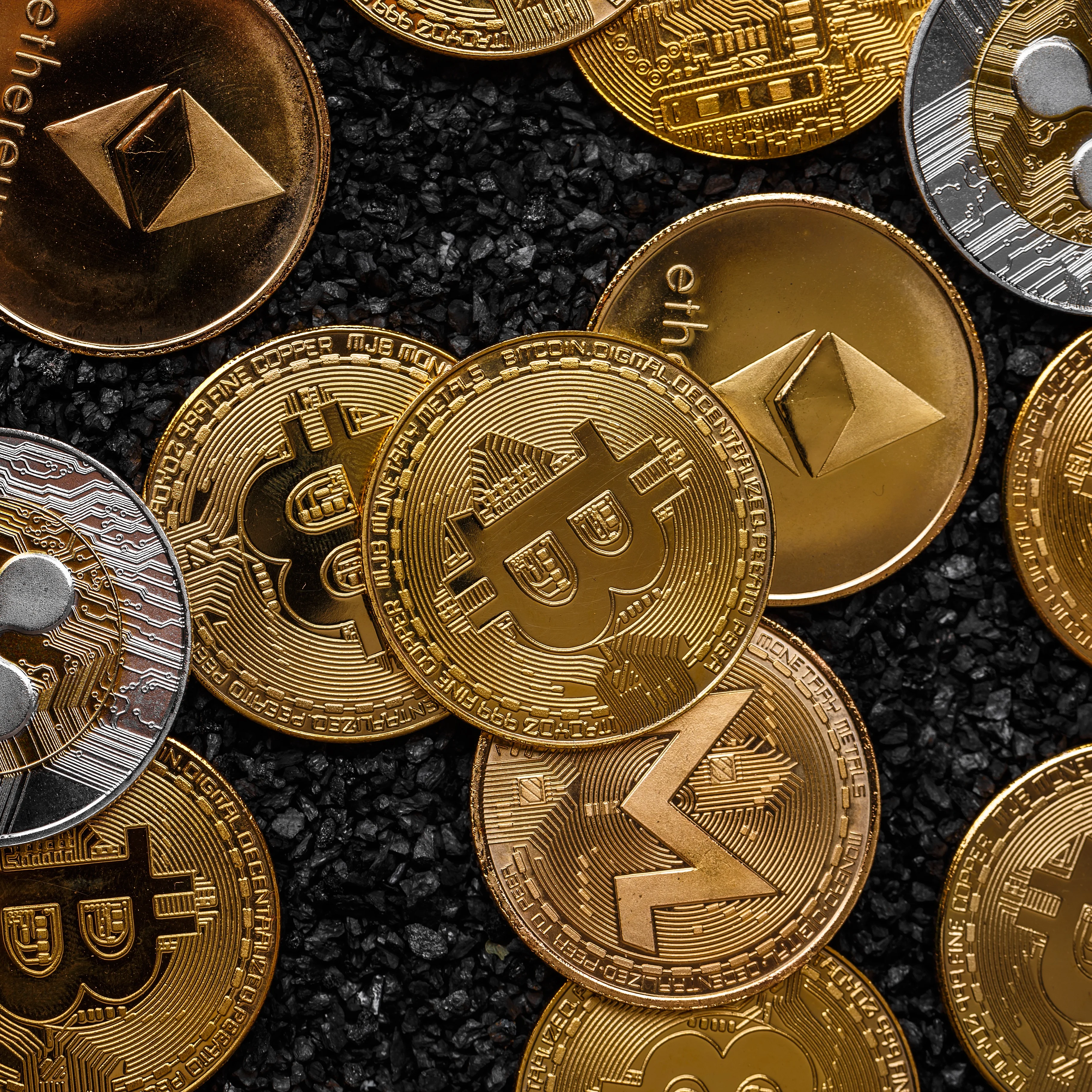Back to Blog
What Is an NFT Marketplace? A Must-Read Guide on OpenSea, Blur, and More

Brad Bergan
Mar 9th, 2023
.5 min read

There's no denying it.
Non-Fungible Tokens (NFTs) have become extremely popular in recent years. The bull run on NFTs in 2021 was replete with iconic sales, like Trevor Jones' Black Angel, which sold for $3.2 million in February 2021.
Since then, the NFT world underwent a major lull during the bear market, when many speculative projects died out, making room for purists to iterate new visions for the future of online life. FTX epitomized the heights of blunder that NFT marketplaces can encounter, when its then-CEO and -Founder Sam Bankman Fried faced allegations of fraud. But now, with the rise of Blur and OpenSea experiencing high trade volume in early 2023, NFT marketplaces remain a crucial facet of the coming Web3 world.
But what exactly are NFT marketplaces?
What is an NFT Marketplace?
An NFT marketplace is an online platform that enables the buying and selling of non-fungible tokens. Unlike conventional art marketplaces, NFT marketplaces make it possible for anyone in the world to own a piece of digital art or collectible, regardless of their access to the traditional art world. In fact, these are among the primary reasons we created the NFT.com marketplace — to provide an Amazon-like user interface for veterans and newcomers to begin their Web3 journey without having to keep dozens of tools and tabs open. This has opened up new opportunities for artists, collectors, and investors to engage with digital assets in a way that was previously impossible.
NFT marketplaces also provide a level of transparency and trust that is not possible with traditional art marketplaces. By leveraging blockchain technology, NFT marketplaces ensure that every transaction is recorded on a secure and decentralized ledger, providing a tamper-proof record of ownership.
In addition to enabling the buying and selling of NFTs, NFT marketplaces also provide a range of tools and services to help creators and investors manage their digital assets. This includes features like portfolio management, pricing, and volume analytics, in addition to secure storage solutions. Additionally, NFT marketplaces often allow creators to mint their own NFTs and sell them to the public. Some marketplaces employ a royalty model where NFT creators are rewarded for secondary sales.
What are NFTs?
But before we look at varying examples of NFT marketplaces, it's important to have a deep grasp of NFTs, since without them, NFT marketplaces wouldn't exist. Known as non-fungible tokens, NFTs are unique digital assets that cannot be replaced or duplicated. This makes them highly sought after by collectors, as it certifies the authenticity and ownership of the asset.
The key to NFTs is blockchain technology, a technology that powers cryptocurrencies like Bitcoin, while also providing a permanent digital record of ownership. A bonus of this is that it's virtually impossible for anyone to alter the information stored within the NFT. This means NFTs can't be duplicated. Each NFT has a unique code that is stored on the blockchain.
Blockchain technology is like a decentralized ledger that creates a permanent digital record of ownership. When an NFT's created, a unique code is generated and stored on the blockchain. This code represents the ownership of the NFT, and, since they can't be duplicated, they gain demand among collectors.
Unlike other cryptocurrencies, NFTs are not interchangeable. In other words, each NFT has a unique value. By contrast, fungible assets, like Bitcoin or USD, all share the same value.
NFTs have had a major impact on several industries, namely, the art world. The creation of NFTs has provided artists with a new way to monetize their work, as they can now sell their digital artwork as unique, one-of-a-kind assets. NFTs have also impacted the music industry, enabling musicians to sell their songs as NFTs, creating a new revenue stream.
Another prominent example can be found in the gaming industry. Here, players can now own unique digital assets within video games, inscribing them with value outside of the actual games. This is just one of the use cases for NFTs within this industry.
Examples of NFT Marketplaces
Several popular NFT marketplaces are worth noting. As a leading NFT marketplace built on the Ethereum blockchain, OpenSea is the most renowned NFT marketplace in the world, with a wide variety of NFTs available for purchase. But in early 2023, its trading volume — or the number of NFTs traded over time — was eclipsed by Blur, a newcomer to Web3. Magic Eden is another popular NFT marketplace, built on the Solana blockchain. It's a unique marketplace that focuses on community-driven NFTs and supports multiple blockchains.
It's also worth noting that NFT marketplaces can support multiple blockchains, making them a versatile and valuable tool for people looking to participate in the NFT ecosystem, whether they prefer the classic Ethereum or the new Bitcoin Ordinals protocol.
These NFT marketplaces serve as a hub for NFT transactions and provide a safe and secure environment for NFT owners and buyers. There are many more NFT marketplaces out there. Some, like OpenSea, are general and offer multiple types of NFTs like digital art, game items, and more. Others are specific to one type of NFT and may require you to go through a verification process.
How to create an NFT marketplace
As we’ve just learned today, NFT marketplaces are an important part of the growing NFT ecosystem. They provide a centralized hub for NFT transactions, making it easier for individuals to participate. As such, they represent a locus point for financial, cultural, and social activity in the coming decades. So it's no surprise that many have taken interest in learning how to create an NFT marketplace. We did.
But creating your own marketplace is not as simple as opening a WordPress page and sending emails to your favorite creators. First, you need to find your niche — will your marketplace support artists, primarily? Or are you interested in something more mainstream, with greater trading volume? Then comes the need to choose which blockchain architecture is right for you. This could be Ethereum, Solana, Bitcoin, or others.
Next is the need to decide whether your NFT Marketplace will be open or closed — which is to say whether your marketplace will emphasize a proprietary token (think BAYC), or host a broader variety of NFTs. The next step is to design your website's presentation. That means UX/UI work, aiming for an introductory experience that your visitors will find irresistible.
After that is the question of your commission fee — do you anticipate a high demand for your offering, justifying a higher gas fee? Whatever you decide, it should be aligned with public interest in your marketplace, and reflect realistic awareness of your current standing. Finally, building the community to give the NFT marketplace a pulse is crucial. This will involve networking with interested artists and creators, in addition to builders, buyers, and collectors who are well-received in other communities. After all, it's not impossible to be competitive without sacrificing a positive influence on the broader NFT ecosystem.
Whether you're only beginning your time with NFT marketplaces, or are ready to breathe life into a new thriving Web3 architecture with your own offering, the Web3 ecosystem simply wouldn't exist without NFT marketplaces. And, as they evolve to suit users' changing needs amid broad growth in trading volume, there's no time like the present to get ahead of your peers.
Related Posts

How To Trade on OpenSea - NFT.com
Discover how to buy and sell NFTs on the popular OpenSea marketplace.

Don Thibeau
Feb 27th, 2023

What Is the Difference Between Crypto and NFTs (2023)
Learn the key features that distinguish NFTs from other varieties of crypto...

Don Thibeau
Feb 24th, 2023

How To Buy NFTs In 2023 - All You Need To Know - NFT.com
Are you new to buying NFTs? Discover the five steps you need to know to pur...

Don Thibeau
Feb 22nd, 2023